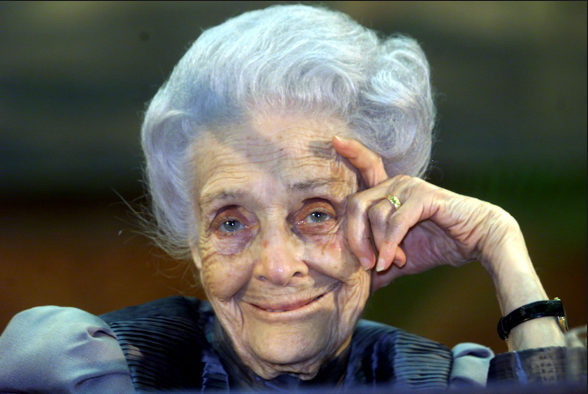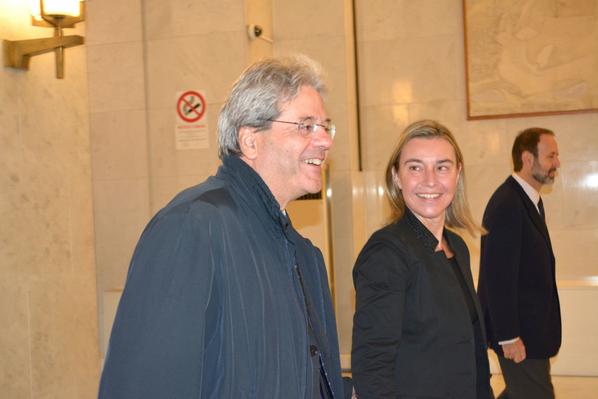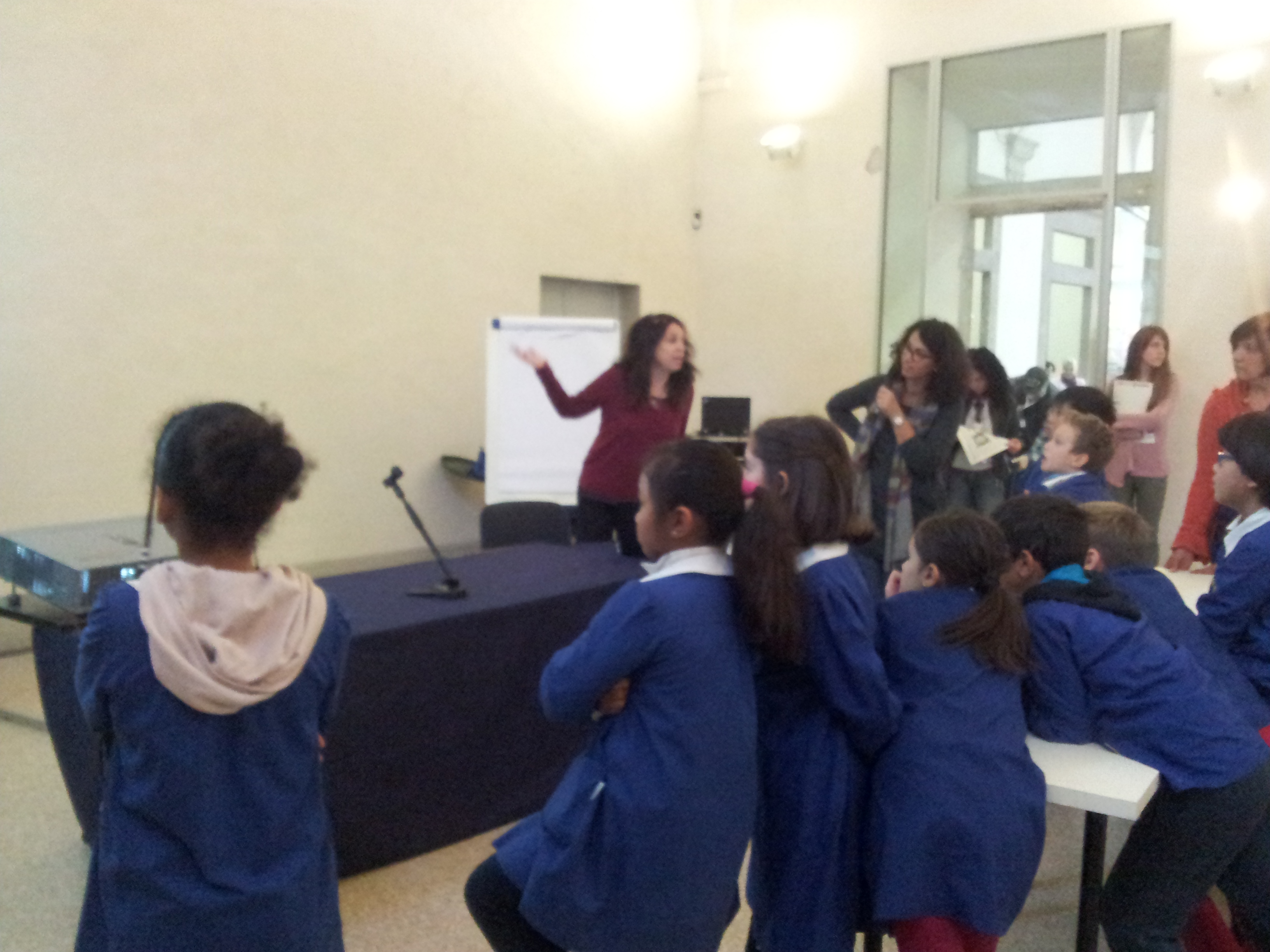 |
An Exemplary Ruling
|
 by Guido Vitale* by Guido Vitale*
In a landmark ruling issued in October (number 238/2014), the Italian
Constitutional Court declared unconstitutional the Italian laws that
prevented victims of Nazi war crimes from taking legal action against
the German state in the Italian Civil Courts to obtain compensation.
On the basis of the principles established by this sentence, the rule
of State immunity can no longer be considered valid in the cases of war
crimes, crimes against humanity, and other actions prejudicial to the
inviolable fundamental right guaranteed by the Italian Constitution.
The leadership of the Union of Italian Jewish Communities has declared
that this is an exemplary ruling of great moral value, which does
justice to the victims of persecution and genocide and their
descendants. This is a ruling that calls on all states to confront and
to respect the values contained in the Constitution that the nascent
Italian Republic enacted in 1948, following the final defeat of the
Nazi and Fascist dictatorships and their racist policy of systematic
extermination of entire populations as a practice of conquest and
subjugation.
Italian Jews believe that this ruling is a further step towards freedom
and equality of all human beings and towards removing an obstacle to
the course of justice.
The sentence of the Italian Constitutional Court specifically relates
to the case of 244 civilians who were murdered by German soldiers on
June 29, 1944, in the town of Civitella in Val di Chiana, Cornia and
San Pancrazio. However it is clear that the newly established principle
that denies immunity to states accused of criminal acts against the
civilian population is likely to trigger a number of other civil
actions for compensation. There is now an expectation that the ruling
will cause a clash with the German government, which does not seem
willing to recognize the principles of the Italian Constitution, and
especially the International Court of Justice in The Hague which in
2012 had confirmed state immunity at the request of the German
government.
However things develop, the decision of the Constitutional Court of
Rome, signed by its President Giuseppe Tesauro, has the merit of
drawing attention to the principle that crimes committed by the Nazi
and Fascist dictatorships can never be forgotten or covered by
impunity, and that justice must not bow to the demands of governments.
*Guido Vitale is
the editor-in-chief of Pagine Ebraiche.
|
| |
 |
Italian Word of the Week:
LA MARCIA
|
by Daniela
Gross
It happened a little over one century ago. La “Marcia su Roma”, the
“March onto Rome” took place in 1922, from 22 to 29 October. The march
itself comprised fewer than 30,000 men, but its symbolic and political
consequences were devastating. It marked, in fact, the coming to power
of the dictator Benito Mussolini and of the National Fascist Party. For
the Italian Jewry, that was a hard and dramatically painful time. The
Jews were progressively deprived of their civil rights, excluded from
public offices, higher education and professional careers, stripped of
their assets, and finally physically persecuted.
Although the dramatic impact of the Fascist dictatorship is clearly
recognized by the Italian public opinion, traces, memories and
nostalgia of the Fascism periodically come back. Obviously,
anniversaries are key opportunities. Thus, a mass aimed at remembering
Mussolini and the men fallen in Anzio and Nettuno in 1944 took place
last week on the March on Rome recurrence, provoking a hard reaction by
the Jewish Community of Rome as well as the National Partisans’
Associations. Another celebration, attended also by many students,
recently took place in Predappio, the birthplace of Mussolini, with
Fascist slogans and Roman salutes. Luckily, the same days registered
also some better news.
In Predappio, the favorite location of nostalgic attitudes, the project
of a new museum dedicated to Fascism is developing. “It will be a place
for research and knowledge, certainly not for celebration”, explained
the director Marcello Flores, professor of Contemporary History at the
University of Siena and scientific director of the National Institute
of the History of the Italian Liberation Movement. “We’ll try to show
the entire reality, so everyone will be able to analyze it."
|
| |
|
|

NEWS
"We
Want Rita on Our Coins"
 By
Daniela Gross By
Daniela Gross
The life, the career and the charisma of Rita Levi-Montalcini have
always been noteworthy, and even now, three years after her death, the
scientist continues to deeply influence Italian public opinion. A
petition, posted on the website change.org less than two weeks ago,
suggested to the Bank of Italy and the government, to print her face on
the 1 euro coin, the most common in Europe. Within a few days the idea
collected approximately 20,000 signatures, a tangible sign of the
respect and the love that she inspired during all her life.
Read
more
|

DEUTSCH
Italien
ist in guter Verfassung
Von Guido Vitale
IchItalienische Opfer von NS-Kriegsverbrechen sollen weiterhin das
Recht haben, vor italienischen Gerichten den deutschen Staat als
Rechtsnachfolger des NS-Regimes zu verklagen. Das hat das italienische
Verfassungsgericht festgestellt, und damit Gesetze, die solche
Klagen verhindern sollen, als verfassungswidrig erklärt. Dieses
Urteil bedeutet, dass die sogenannte Staatenimmunität nicht im Falle
von Kriegsverbrechen oder Verbrechen gegen die Menschlichkeit angewandt
werden darf. Wenn in der Verfassung als unantastbar festgelegte Rechte
verletzt werden, darf eine juristische Verfolgung nicht eingeschränkt
werden.
Die Union der Jüdischen Gemeinden Italiens hat dieses Urteil als
beispielhaft und mit hohem moralischen Wert begrüßt. Es verhelfe den
Opfern von Verfolgung und Völkermord und deren Nachkommen zu
Gerechtigkeit. Dieses Urteil zwinge alle Staaten dazu, die Verfassung,
die sich Italien 1948 nach der endgültigen Niederlage der
nationalsozialischen und faschistischen Diktaturen und ihrer
systematischen Ausrottungspolitik gegeben hat, zu respektieren. Die
italienischen Juden glauben, dass dieses Urteil ein wichtiger Schritt
ist in Richtung der Freiheit und der Gleichheit aller Menschen.
Das Urteil des Gerichts bezieht sich konkret auf den Fall von 244
Zivilisten, die von deutschen Soldaten am 29. Juni 1944 in den Städten
Civitella in Val di Chiana, Cornia und San Pancrazio ermordet wurden.
Es ist jedoch klar, dass der jetzt festgelegte Grundsatz, dass es keine
Immunität für Staaten, die strafbarer Handlungen gegen die
Zivilbevölkerung beschuldigt werden, geben darf, eine Reihe anderer
Schadensersatzklagen nach sich ziehen wird. Das wird zum Konflikt mit
der deutschen Bundesregierung führen. Offenbar ist Deutschland nicht
bereit, die Prinzipien der italienischen Verfassung zu respektieren.
Das gilt auch für den Internationalen Gerichtshof in Den Haag, der die
deutsche Auffassung im Jahr 2012 bestätigt hatte.
Doch die Dinge entwickeln sich. Das Urteil des italienischen
Verfassungsgerichts hat das große Verdienst, klargestellt zu haben,
dass die Verbrechen der nationalsozialistischen und faschistischen
Diktaturen niemals vergessen werden dürfen und dass es für sie nie
Straffreiheit geben kann. Anders formuliert: Dass sich Gerechtigkeit
nicht den Forderungen von Regierungen beugen muss.
(Jüdische Allgemeine
Wochenzeitung, 30. Oktober 2014)
Weiter
lesen
|

| Tohu
and Bohu: Chaotic Confusion |

By Yaakov Mascetti*
The narration representing the creation of the universe leads the
reader, I think, from the nothingness that precedes moment of Divine
speech, "Let there be light," through the gradual separation and
simplification of created matter. While in the first verse of Genesis
God is presented as creating the heavens and the earth, and in the
second verse that very earth is mysteriously defined as "formless and
void," darkness covers the surface of the abyss, and the "Spirit of
God" hovers over the "surface of the waters." I would like to focus on
the two words the Torah uses in order to represent the "earth" right
after it has been created ex-nihilo (tohu va-vohu), and reconnect my
interpretation to what I have always seen as Rashi's obscure reading of
the first words of the Torah.
*Yaakov Mascetti holds
a Ph.D. and teaches at the Department of Comparative Literature, Bar
Ilan University.
Read
more
|
|
|
Follow
us on  
This newsletter is published under difficult conditions. The editors of
this newsletter are Italian journalists whose native language is
Italian. They are willing to offer their energy and their skills to
give international readers the opportunity of learning more about the
Italian Jewish world, its values, its culture and its traditions.
In spite of all our efforts to avoid this, readers may find an
occasional language mistake. We count on your understanding and on your
help and advice to correct these mistakes and improve our publication.
Pagine Ebraiche International Edition is published by the Union of
Italian Jewish Communities (UCEI). UCEI publications encourage an
understanding of the Jewish world and the debate within it. The
articles and opinions published by Pagine Ebraiche International
Edition, unless expressly stated otherwise, cannot be interpreted as
the official position of UCEI, but only as the self-expression of the
people who sign them, offering their comments to UCEI publications.
Readers who are interested in making their own contribution should
email us at desk@ucei.it
You received this newsletter because you authorized UCEI to contact
you. If you would like to remove your email address from our list, or
if you would like to subscribe using a new email address, please send a
blank email to desk@ucei.it
stating "unsubscribe" or "subscribe" in the subject field.
© UCEI - All rights reserved - The articles may only be reproduced
after obtaining the written permission of the editor-in-chief. Pagine
Ebraiche - Reg Rome Court 199/2009 – Editor in Chief: Guido Vitale -
Managing Editor: Daniela Gross.
Special thanks to: Francesco Moises Bassano, Susanna Barki, Monica
Bizzio, Angelica Edna Calò Livne, Eliezer Di Martino, Alain Elkann,
Daniela Fubini, Benedetta Guetta, Sarah Kaminski, Daniel Leisawitz,
Annette Leckart, Gadi Luzzatto Voghera, Yaakov Mascetti, Francesca
Matalon, Anna Momigliano, Giovanni Montenero, Elèna Mortara, Lisa
Palmieri Billig, Shirley Piperno, Giandomenico Pozzi, Daniel Reichel,
Rachel Silvera, Adam Smulevich, Simone Somekh, Rossella Tercatin, Ada
Treves.
Questo notiziario è realizzato in
condizioni di particolare difficoltà. I redattori di questo notiziario
sono giornalisti italiani di madrelingua italiana. Mettono a
disposizione le loro energie e le loro competenze per raccontare in
lingua inglese l'ebraismo italiano, i suoi valori, la sua cultura e i
suoi valori. Nonostante il nostro impegno il lettore potrebbe trovare
errori e imperfezioni nell'utilizzo del linguaggio che faremo del
nostro meglio per evitare. Contiamo sulla vostra comprensione e
soprattutto sul vostro aiuto e sul vostro consiglio per correggere gli
errori e migliorare.
Pagine Ebraiche International Edition è una pubblicazione edita
dall'Unione delle Comunità Ebraiche Italiane. L'UCEI sviluppa mezzi di
comunicazione che incoraggiano la conoscenza e il confronto delle
realtà ebraiche. Gli articoli e i commenti pubblicati, a meno che non
sia espressamente indicato il contrario, non possono essere intesi come
una presa di posizione ufficiale, ma solo come la autonoma espressione
delle persone che li firmano e che si sono rese gratuitamente
disponibili. Gli utenti che fossero interessati a offrire un proprio
contributo possono rivolgersi all'indirizzo desk@ucei.it
Avete ricevuto questo messaggio perché avete trasmesso a Ucei
l'autorizzazione a comunicare con voi. Se non desiderate ricevere
ulteriori comunicazioni o se volete comunicare un nuovo indirizzo
email, scrivete a: desk@ucei.it
indicando nell'oggetto del messaggio "cancella" o "modifica".
© UCEI - Tutti i diritti riservati - I testi possono essere riprodotti
solo dopo aver ottenuto l'autorizzazione scritta della Direzione.
Pagine Ebraiche International Edition - notiziario dell'ebraismo
italiano - Reg. Tribunale di Roma 199/2009 - direttore responsabile:
Guido Vitale - Coordinamento: Daniela Gross.
Realizzato con il contributo di: Francesco Moises
Bassano, Susanna Barki, Monica Bizzio, Angelica Edna Calò Livne,
Eliezer Di Martino, Alain Elkann, Daniela Fubini, Benedetta Guetta,
Sarah Kaminski, Daniel Leisawitz, Annette Leckart, Gadi Luzzatto
Voghera, Yaakov Mascetti, Francesca Matalon, Anna Momigliano, Giovanni
Montenero, Elèna Mortara, Lisa Palmieri Billig, Shirley Piperno,
Giandomenico Pozzi, Daniel Reichel, Rachel Silvera, Adam Smulevich,
Simone Somekh, Rossella Tercatin, Ada Treves.
|













